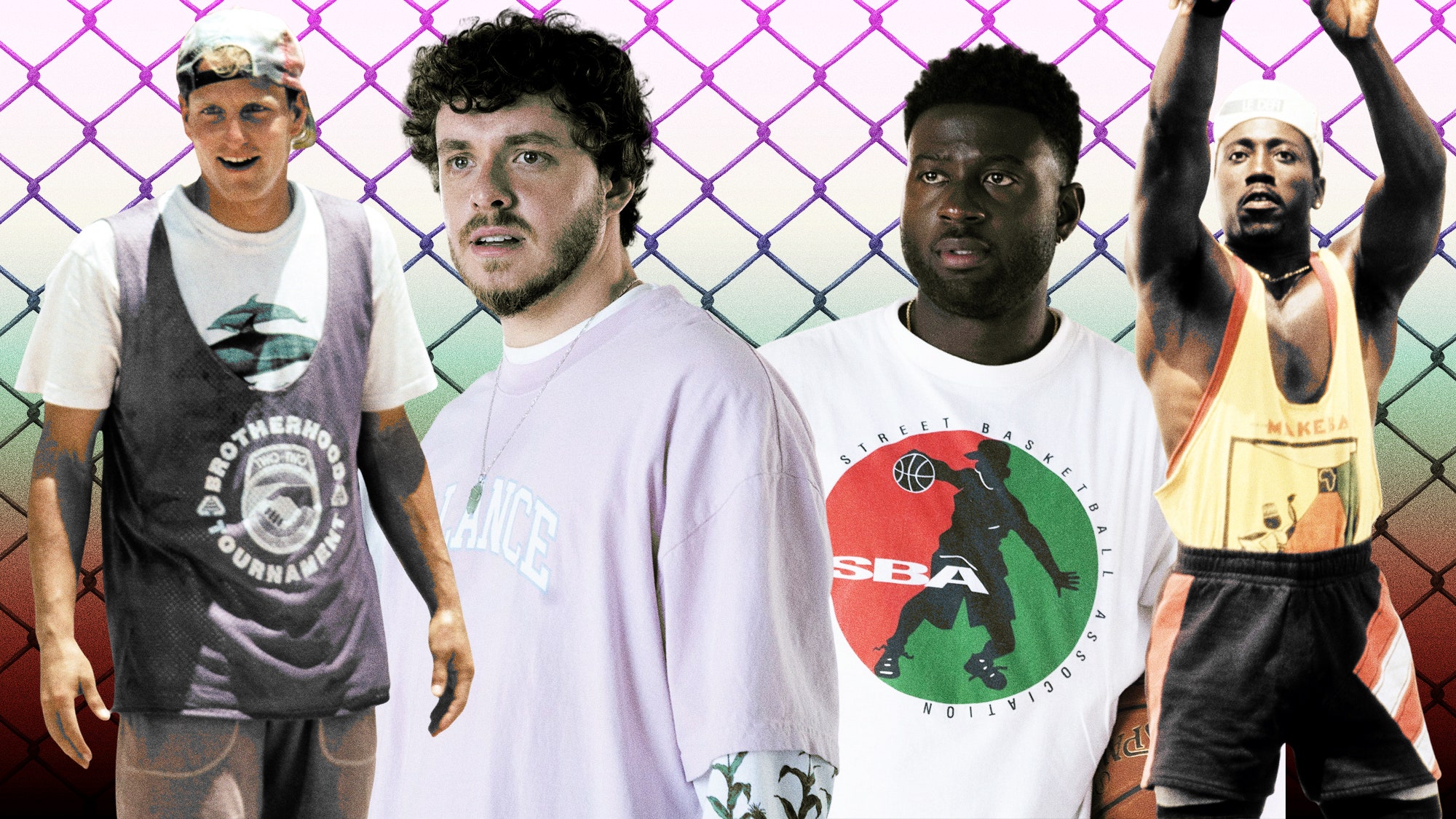‘White Men Can’t Jump’ Remake’s Basketball: How Good Is It Vs. The Original

When word spread that the beloved 1992 Ron Shelton streetball and race relations classic White Men Can’t Jump was getting a streaming-era remake, a collective groan could be heard across the internet from purist lovers of buddy sports comedies, basketball, and film.
The film, directed by Calmatic (aka Charles Kidd II, previously a director of music videos who also helmed a House Party remake released back in January), sadly proves its skeptics right. The original White Men Can’t Jump is a one-joke premise: What if a white guy preyed on the assumptions about the lack of white athleticism to hustle his way through the pick-up hoops courts of Los Angeles? Yet that broad premise contains within it human stories, of begrudging friendship, finding love at the wrong time in life, and what it means to mature into adulthood. The remake is limp and hollow in every respect, especially compared to its source material, and particularly in terms of its depictions of the actual basketball.
Shelton’s classic, shot wide, and in long takes, revels in the beats, in the joy of actually playing the game. Stars Wesley Snipes and Woody Harrelson are clearly having a great time, and their obvious joy is contagious. In the remake, Jack Harlow had one stunt double, and co-star Sinqua Walls had two. Both appear to have gotten ample work, as the one aspect the new White Men Can’t Jump is masterful in is blocking. The majority of the basketball is shot from behind, in tight, aggressively clipped shots that are all money and no process.
The original depicts approximately seven games, with 38 points, a three-point contest, and a dunk contest. Each game plays out as its own narrative with its own arc, with several possessions depicted basically in full–their own mini-stories existing unto themselves.
The remake has approximately 14 games, showing 28 points, also with a three-point contest (with a runtime ten minutes shorter than its source). Most games are communicated through a single point scored, with a heavily edited few seconds of the end of a play, of a jump shot or layup, followed by Harlow counting money.
Putting aside from the craft or lack thereof in either film, we wanted to run the numbers. So GQ is putting on a pair of Adam Sandler’s ridiculously baggy basketball shorts, posting up in the gym, and scouting the four primary protagonists in both films, assigning NBA Jam attributes to each in an attempt to evaluate which team would win in a head-to-head fantasy showdown.
Sidney Deane (Wesley Snipes, 1992)
SPEED: 10 POWER: 6
3PTS: 6 STEAL: 2
DUNK: 8 BLOCK: 0
PASS: 9 CLTCH: 3
Wesley Snipes isn’t a talented or practiced basketball player, and his style of play in the original White Men Can’t Jump is full of unnecessary flair and absurd feints, which Shelton films in gratuitous slo-mo,. Snipes spends much of the movie perfecting a midget Hakeem Olajuwon impression that has aged poorly. But he’s not unathletic. For one, he’s ripped. As Sidney Deane, he’s an extremely quick, small (5’9) combo guard in the mold of the great Nate Robinson. He lives for Globe-Trotterish hot dog plays, and is a willing passer. But neither Billy, Sidney, or really anyone in the first film plays any serious defense. Sidney blows his three-point shootout with Billy after he can’t take the trash talk he’s been dishing out. He throws a game to fuck Billy out of his buy-in, so it’d be hard to call him clutch, but he’s still an asset to a two-man streetball team when he’s committed to actually winning.
Billy Hoyle (Woody Harrelson)
SPEED: 3 POWER: 2
3PTS: 10 STEAL: 1
DUNK: 2 BLOCK: 0
PASS: 8 CLTCH: 3
Copyright : https://www.gq.com/story/white-men-cant-jump-2023-remake-jack-harlow-basketball-rating

